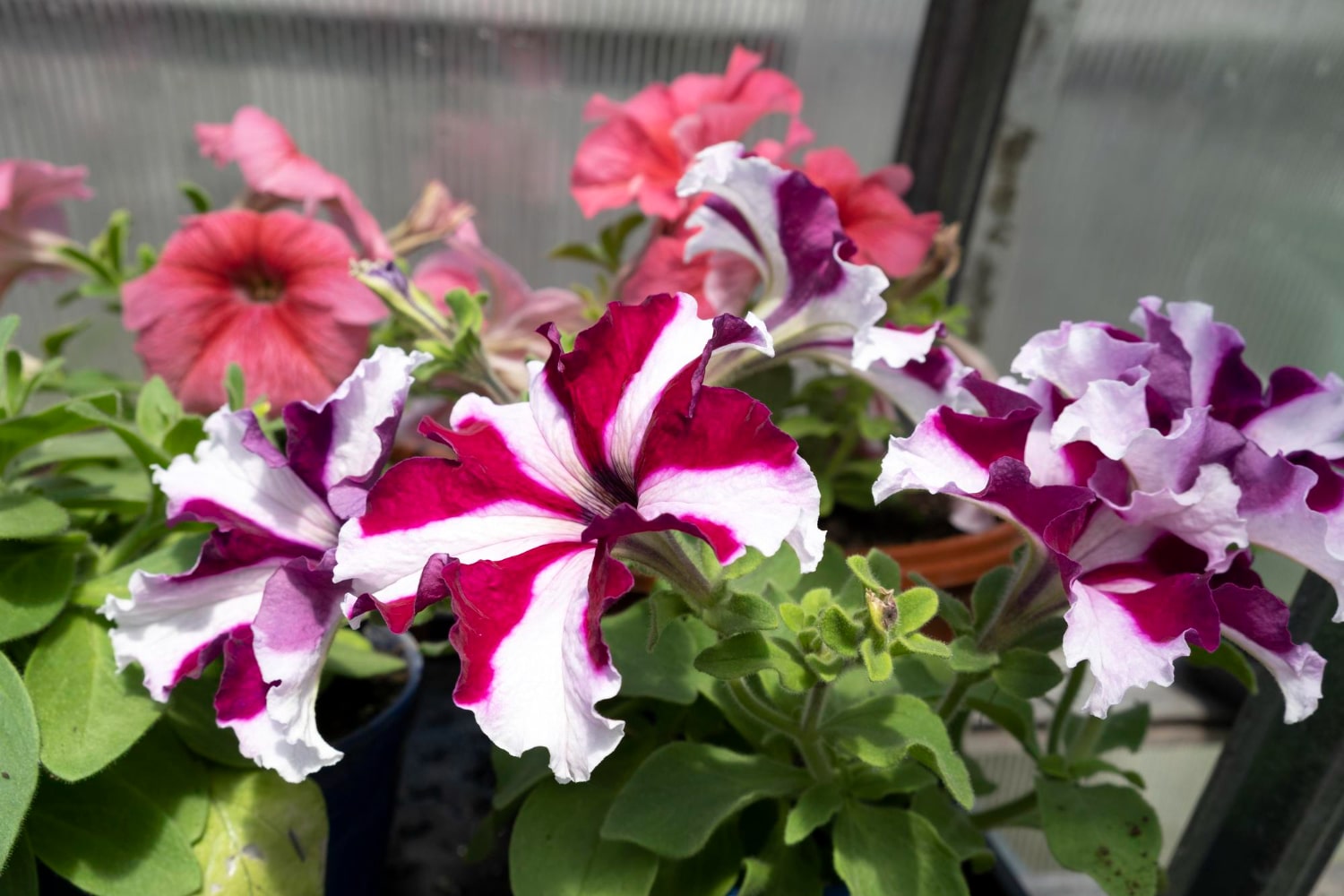Petunias are among the most beloved flowers worldwide, frequently found adorning balconies, terraces, flowerbeds, and city parks. They attract attention with their vivid colors, long-lasting blooms, and a wide range of shapes. These flowers are not only beautiful but also have an interesting history, unique botanical characteristics, and an exceptional ability to adapt to different environments. Here are some fascinating facts about petunias you might not have known.
- Petunias originate from South America, particularly from present-day Argentina, Uruguay, and Brazil. The word “petunia” comes from the indigenous Brazilian word “petun,” meaning “tobacco,” as petunias belong to the same plant family as tobacco — Solanaceae.
- Wild petunias were rather modest in appearance, but through the work of plant breeders, today we have over 5,000 cultivars with diverse colors, shapes, and patterns.
- Petunia petals can be single-colored or multi-colored. Some varieties have patterns resembling stars, veins, edges, or spots, and there are even exotic kinds with black or green flowers.
- One of the most popular types is cascading petunias, which create lush, flowing arrangements in hanging pots. Some stems can grow over a meter in length.
- Petunias emit a soft, pleasant fragrance, especially noticeable in the evening. Some varieties are specifically bred for enhanced scent to attract nocturnal pollinators.
- These plants bloom almost continuously from late spring until the first frost. All they need is the regular removal of faded blooms, consistent watering, and periodic fertilizing.
- Petunias love sunlight and tolerate summer heat well. However, they are sensitive to excess moisture, so good drainage in pots or flowerbeds is essential.
- Some petunia varieties are capable of self-recovery. Even after heavy rain or mechanical damage, they quickly regain their form and continue blooming profusely.
- Although petunias are typically grown as annuals, they are actually perennials in their native climate. In warm regions or indoors, they can live and bloom for several years.
- Petunias can be propagated not only by seeds but also by cuttings. This is especially helpful for preserving the characteristics of rare or double-flowered varieties.
- Creating new petunia cultivars is a complex and time-consuming process that can take several years. Modern varieties are not only colorful but also resistant to diseases, pests, and environmental stress.
- Petunias belong to the Solanaceae family, which also includes potatoes, tomatoes, eggplants, and tobacco. Although decorative, some parts of the plant contain mild toxins and are not edible.
- Indoors, petunias can be grown year-round on windowsills with sufficient light. In winter, they require supplemental lighting to thrive.
- Petunias are widely used in urban landscaping due to their resilience and decorative appeal. They can handle pollution and bring vibrant color to city spaces.
- Some countries host flower festivals dedicated to petunias. In Japan, for example, petunias are showcased alongside roses and orchids during seasonal flower exhibitions.
- The color of petunia petals can change depending on temperature, humidity, and sunlight. Cooler weather often intensifies their color, making them appear more vivid.
- Petunias can help purify the air by reducing dust and harmful substances. Some studies suggest they can lower indoor levels of formaldehyde.
- In garden design, petunias are often combined with other plants such as lobelia, verbena, salvia, or begonias. Their versatility makes them ideal for creating stunning floral arrangements in any style.
- In folk symbolism, petunias represent harmony, comfort, and sincere emotions. It is believed that these flowers bring a sense of peace and warmth wherever they grow.
- Petunias can also be grown in vertical gardens or on decorative flower towers. This saves space and adds a modern touch to any outdoor area.
These incredible facts about petunias prove that they are not just decorative garden flowers but true wonders of nature. Their resilience, diversity, and beauty make them a favorite in gardens and balconies around the world. You may not have known it before, but petunias are a blend of nature’s charm and human creativity, deserving a special place wherever you grow flowers.





